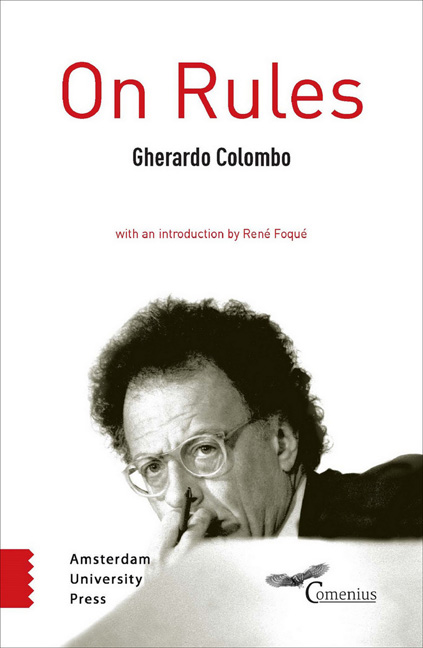Book contents
- Frontmatter
- Introduction: Gherardo Colombo’s Concern for the Democratic State under the Rule of Law: A Work in Progress
- Why?
- 1 An Imaginary Country
- Contents
- Part I The Ambiguities of Justice
- Part II Horizontal Society and Vertical Society
- Part III Towards a Horizontal Society
- Part IV How Do We Get There?
- Conclusion
- Acknowledgments
11 - Structure of the Two Models
Published online by Cambridge University Press: 24 December 2020
- Frontmatter
- Introduction: Gherardo Colombo’s Concern for the Democratic State under the Rule of Law: A Work in Progress
- Why?
- 1 An Imaginary Country
- Contents
- Part I The Ambiguities of Justice
- Part II Horizontal Society and Vertical Society
- Part III Towards a Horizontal Society
- Part IV How Do We Get There?
- Conclusion
- Acknowledgments
Summary
The features of the one and the other type of society can, to some extent, blend with each other.
It may be that a society, on the whole, is organised vertically, but the horizontal system is also partly applied.
This has happened repeatedly throughout the history of humanity, for instance in countries which codified equality among citizens but at the same time practiced slavery. Classical Greece, in particular the Athenian Republic, is often taken as a model for a society which respected the individual. And yet it, too, acknowledged this disparity, the different consideration of human beings depending on the accidental circumstances they found themselves in, such as, for instance, the status of freeman or slave.
Today some democratic states apply the death penalty, which means that only within certain limits are individuals inviolable in their very existence. If these limits are transgressed, the principle of inviolability ceases to exist.
This mixed organisation can also be reflected in relationships between peoples. It may be, for example, that the stronger, better armed, richer nation regards only one part of humanity as worthy of respect, and sees another merely as an instrument, disposable, or exploitable depending on the situation. This has happened, for example, in a relatively recent era when the ‘civilisations’ of the Americas and Europe used to obtain slaves by (literally) stealing individuals from other populations.
The combination of these two conceptions of society and of the two corresponding organisational models generates a virtually infinite range of possibilities, the type of discipline of living life together, and hence the meaning of the word ‘justice’.
- Type
- Chapter
- Information
- On Rules , pp. 64Publisher: Amsterdam University PressPrint publication year: 2016

